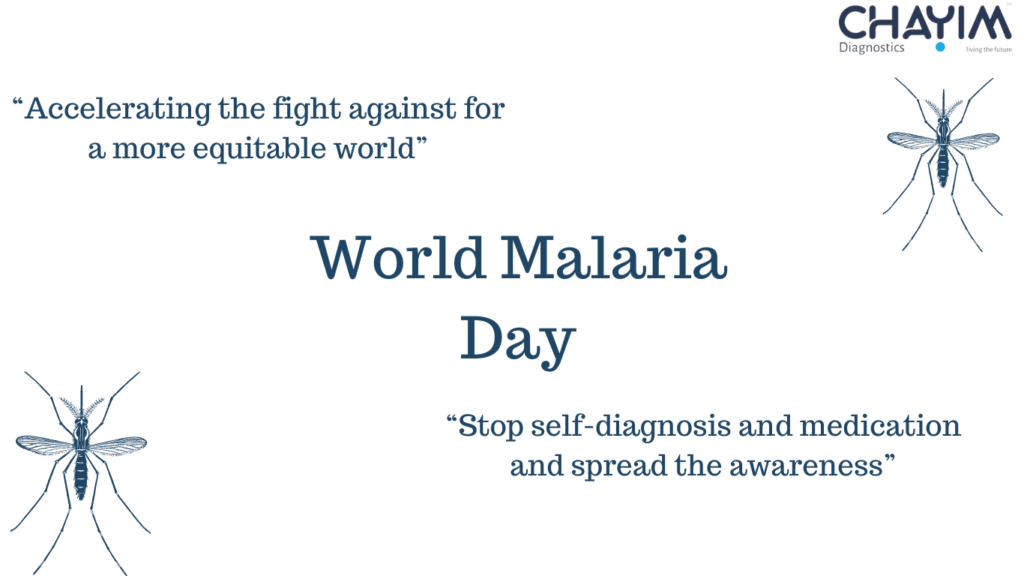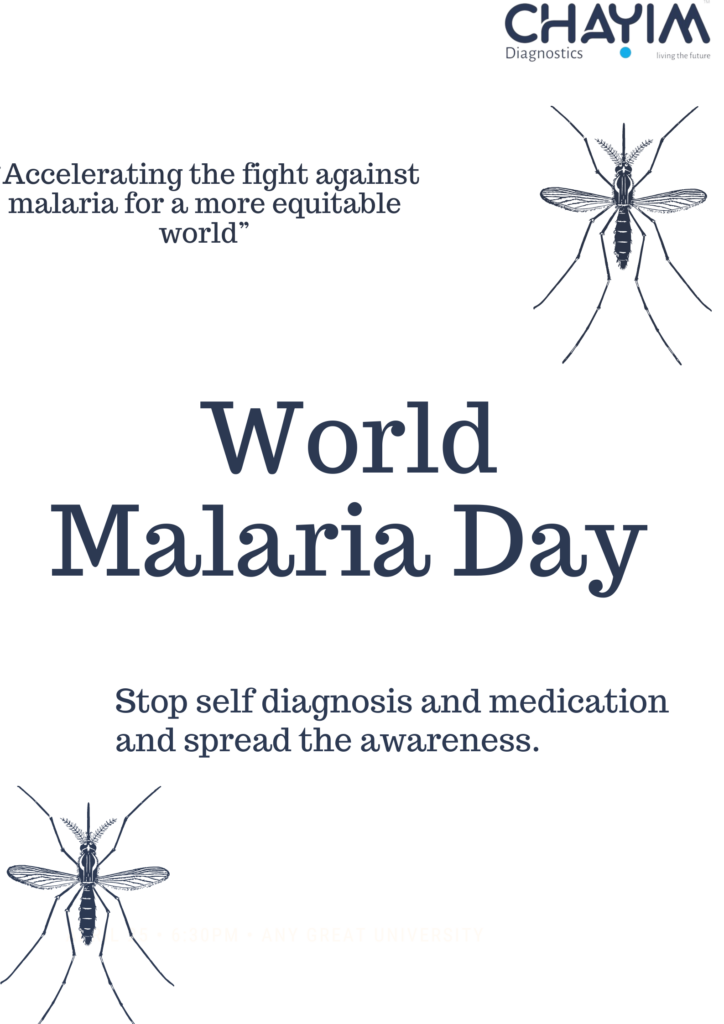WORLD MALARIA DAY – ACCELERATING THE FIGHT AGAINST MALARIA FOR A MORE EQUITABLE WORLD

Malaria is a life-threatening mosquito-borne disease caused by parasites of the Plasmodium genus. It is transmitted to humans through the bites of infected female Anopheles mosquitoes. Malaria remains a significant public health concern, particularly in Nigeria.
While malaria is preventable and treatable, it continues to affect millions of people worldwide, with severe cases leading to life-threatening complications such as cerebral malaria (a severe form of the disease affecting the brain), severe anemia, respiratory distress, organ failure, and death, particularly if left untreated.
Common Symptoms of Malaria:
Classical Symptoms:
- Fever: One of the hallmark symptoms of malaria is recurrent episodes of fever, often accompanied by chills and sweating.
- Fatigue: Feelings of extreme tiredness and lethargy are common during malaria episodes.
- Headache: Persistent headaches, sometimes severe, can occur from malaria infection.
- Muscle and Joint Pain: Body aches, muscle soreness, and joint pain are typical symptoms, like those experienced with the flu.
Digestive Symptoms:
- Nausea and Vomiting: Some individuals may experience nausea, vomiting, and a general feeling of malaise during malaria attacks.
- Diarrhea: Diarrheal symptoms may occur, although they are less common than other malaria symptoms.
Respiratory Symptoms:
Cough: A dry cough or respiratory discomfort may manifest in some cases, particularly in severe or complicated malaria infections.
Symptoms of Complicated Malaria
While the classical symptoms are well-known, there are several signs that individuals may overlook, leading to complicated cases. These symptoms can vary depending on the type of Plasmodium parasite causing the infection and the severity of the disease. It’s essential to recognize these signs to ensure timely medical intervention and prevent complications.
Altered Mental Status:
Confusion, disorientation, and changes in mental status can occur in severe cases of this disease, indicating potential neurological complications such as cerebral malaria.
Jaundice:
Yellowing of the skin and eyes (jaundice) may occur due to liver involvement, especially with Plasmodium falciparum infection.
Abdominal Pain and Enlarged Spleen:
Some individuals may experience abdominal pain, tenderness, or discomfort, often accompanied by an enlarged spleen (splenomegaly).
Anemia:
This disease can lead to anemia due to the destruction of red blood cells by the parasite. Symptoms of anemia include weakness, pale skin, shortness of breath, and fatigue.
Hypoglycemia:
In severe rare cases, the disease can lead to dangerously low blood sugar levels (hypoglycemia), resulting in confusion, seizures, loss of consciousness, and coma.
Organ Failure:
Complicated malaria infections can progress to multiple organ dysfunction syndrome (MODS), leading to kidney failure, liver failure, and cardiovascular collapse.
The symptoms of malaria develop within 7 to 21 days after being bitten by an infected mosquito. However, in some cases, symptoms may take longer to appear. When we experience symptoms, it’s advisable to consult with your healthcare professional, as self-diagnosis and medications is not advised.
Preventive Measures
Here are few preventive measures that we can practice collectively or as individuals to protect ourselves from this disease:
Environmental Management:
Keeping the environment clean and free of mosquito breeding sites, such as stagnant water, by draining, filling, or treating them with larvicides to help reduce mosquito populations and minimize the disease transmission.
Use of Insecticide-Treated Bed Nets (ITNs):
Sleeping under Insecticide or mosquito treated nets will reduce the risk of mosquito bites during the night. These nets are treated with insecticides that repel or kill mosquitoes, preventing them from transmitting the malaria parasite.
Indoor Residual Spraying (IRS):
Indoor spraying of insecticides can help control mosquito populations and reduce the risk of transmission.
Chemoprophylaxis:
For individuals traveling to malaria-endemic areas, taking antimalarial medication as prescribed by a healthcare professional is essential for preventing infection. Different antimalarial drugs are recommended depending on the destination and the traveler’s medical history.
Health System Strengthening:
Strengthening health systems in malaria-endemic regions is crucial for ensuring access to timely diagnosis, treatment, and preventive measures. This includes improving healthcare infrastructure, training healthcare workers, and ensuring the availability of essential medicines and supplies.
As we work together to fight against Malaria, Chayim Diagnostics is encouraging individuals stop “Self-diagnosis and Self-medication”.
To book for your Malaria test, visit https://store.chayimds.com/tests OR give us a call on 08140704382 or send us an email at [email protected] OR visit us at No 34, Euphrates Street Maitama, Abuja, and take a step towards becoming a healthier you.


Responses